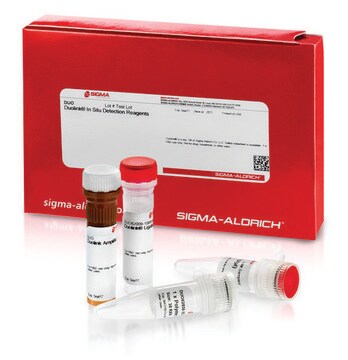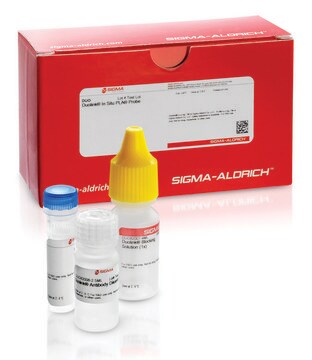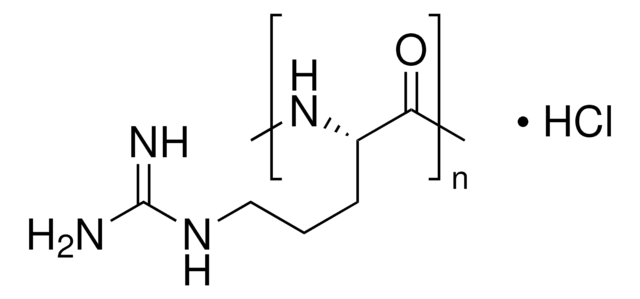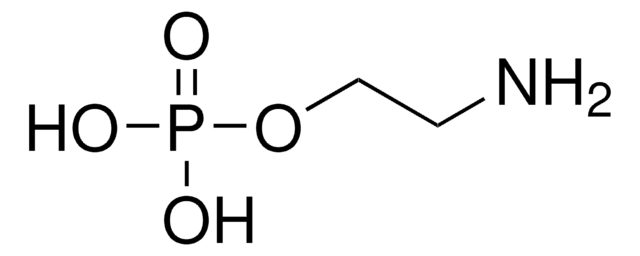ABS1849
Anti-phospho-Rsk1 (Thr359/Ser363) Antibody
from rabbit, purified by affinity chromatography
Sinonimo/i:
Ribosomal protein S6 kinase alpha-1, Thr359/Ser363 phosphorylated, 90 kDa ribosomal protein S6 kinase 1, Thr359/Ser363 phosphorylated, MAP kinase-activated protein kinase 1a, Thr359/Ser363 phosphorylated, MAPK-activated protein kinase 1a, Thr359/Ser363 p
About This Item
Prodotti consigliati
Origine biologica
rabbit
Livello qualitativo
Forma dell’anticorpo
affinity isolated antibody
Tipo di anticorpo
primary antibodies
Clone
polyclonal
Purificato mediante
affinity chromatography
Reattività contro le specie
human
Reattività contro le specie (prevista in base all’omologia)
porcine (based on 100% sequence homology), bovine (based on 100% sequence homology), chicken (based on 100% sequence homology), Xenopus (based on 100% sequence homology)
tecniche
immunohistochemistry: suitable
immunoprecipitation (IP): suitable
inhibition assay: suitable (peptide)
western blot: suitable
N° accesso NCBI
N° accesso UniProt
modifica post-traduzionali bersaglio
phosphorylation (pThr359/pSer363 )
Informazioni sul gene
human ... RPS6KA1(6195)
Descrizione generale
Specificità
Immunogeno
Applicazioni
Immunohistochemistry Analysis: A 1:250-1000 dilution from a representative lot detected Rsk1 Thr359/Ser363 phosphorylation in human cervical cancer tissue, normal kidney, liver, and small intestine tissue sections.
Peptide Inhibition Assay: Preincubation with the immunogen peptide, but not the corresponding non-phosphorylated control peptide, prevented the polyclonal antibody from detecting the target Rsk1 phosphorylation band.
Signaling
Kinases & Phosphatases
Qualità
Western Blotting Analysis: 0.1 µg/mL of this antibody detected enhanced Rsk1 Thr359/Ser363 phosphorylation in 10 µg of lysate from EGF-treated A431 cells.
Descrizione del bersaglio
Stato fisico
Stoccaggio e stabilità
Altre note
Esclusione di responsabilità
Non trovi il prodotto giusto?
Prova il nostro Motore di ricerca dei prodotti.
Codice della classe di stoccaggio
12 - Non Combustible Liquids
Classe di pericolosità dell'acqua (WGK)
WGK 1
Punto d’infiammabilità (°F)
Not applicable
Punto d’infiammabilità (°C)
Not applicable
Certificati d'analisi (COA)
Cerca il Certificati d'analisi (COA) digitando il numero di lotto/batch corrispondente. I numeri di lotto o di batch sono stampati sull'etichetta dei prodotti dopo la parola ‘Lotto’ o ‘Batch’.
Possiedi già questo prodotto?
I documenti relativi ai prodotti acquistati recentemente sono disponibili nell’Archivio dei documenti.
Il team dei nostri ricercatori vanta grande esperienza in tutte le aree della ricerca quali Life Science, scienza dei materiali, sintesi chimica, cromatografia, discipline analitiche, ecc..
Contatta l'Assistenza Tecnica.







